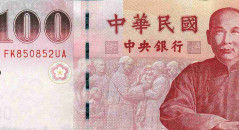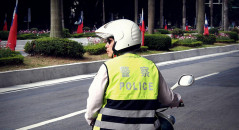
Foreign nationals are most commonly employed as English teachers, or in sales, marketing, technical writing, and editing for the IT industry
Teaching English
The majority of westerners in Taiwan come to teach English. While some go into the public school or university systems, most people will end up teaching at a buxiban, also known as a “cram school”. The buxiban industry is big business, and there are several large corporations involved, like Hess, Kojen, and Global Village. There are also single-room “mom-and-pop” buxibans that hire a single native speaker and work on very tight margins. Salaries range from NT$450 per teaching hour upwards, and in-demand teachers can often make in excess of NT$1000 an hour. Many buxibans will expect one hour of preparation for each hour of class taught, so your hourly take-home pay overall can work out at half the advertised rate. Be aware, and read the small print. Other places simply offer a monthly salary for a certain number of hours per week (teaching and non-teaching). In this case salaries go from around NT$50,000 to NT$70,000 per month, and thanks to the low income tax rates you will keep a lot more of that than in most western countries. At an average teaching salary of NT$60,000 you can expect to take home around NT$55,000, depending on how your employers structure your basic salary and bonuses.
Getting a visa to teach English is relatively simple, though there are some important caveats to bear in mind. You will need a four-year Bachelor’s degree (three years in the case of the UK). It is also possible to get a working visa with an associate degree plus a teaching qualification, though not common. You must also have a passport from a country on the approved list of “native English-speaking countries”: Australia, Canada, the Republic of Ireland, New Zealand, South Africa, the UK, and the USA. Your work permit will initially be tied to a single location, and if you work outside that school (even for another school in the same chain) you be in breach of your working conditions and liable to deportation. This is not just a technicality—many foreign teachers have been fined and kicked out of the country for working at a place not specified on their work permits. Other schools can be added to your work permit but it takes a little while to process, so make sure you remind your manager of this necessary step. The Foreign Affairs Police will periodically conduct raids on schools, often in response to a tip-off from a mischievous competitor.
Racial discrimination is common in buxiban hiring practices. Some schools will only want a white face, rejecting non-whites on several grounds. There is a widespread misconception that non-whites will not speak the language as “natively” as Caucasians. A further problem for westerners of Taiwanese or Chinese descent is that teachers are often used as a walking advertisement for schools, and they often prefer an “obvious” (i.e. non-Asian) foreigner for this very reason. These discriminatory practices will not stop you getting a job if you don’t fit the profile commonly expected (white, young, attractive), but it will make it more difficult. On the plus side, many of the schools that care about their teaching standards in addition to the bottom line are very happy to hire native speakers of any ethnicity. So, it may take non-Caucasians longer to find a job, but these jobs can often be with better employers.
White-collar work
While opportunities are not as common as in Singapore, Hong Kong, or Shanghai, there is a market in Taiwan for professionals in certain industries. The most common white-collar jobs for non-Taiwanese are in the technology sector, primarily covering technical writing, marketing, and sales. Most of these positions are concentrated in Taipei and Hsinchu, and starting salaries are low by Western standards, ranging from NT$50,000 to NT$70,000. Experienced professionals with the right skills can make much better money, but these jobs are few and far between. Outside of these common occupations, various companies will have a need for specific technical or engineering skills, and may hire in a foreign professional to help with a certain area of business.
To apply for a work permit for a white-collar position, applicants will need to show a Bachelor’s degree (in any subject) and two years of relevant post-graduation work experience. For holders of Master’s degrees and above, the work experience requirement is waived. The company wishing to hire you will also have to apply for permission to do so, which necessitates ticking a number of boxes. The company must be of a sufficient size and generate a sufficient turnover, and the company must also demonstrate why the job they are hiring you for could not be done by a Taiwanese person. The case for the latter requirement is usually based on language ability, though other technical expertise can also serve as a qualifying reason.
Once cleared for your work permit, you will get a visa, which you can then convert into an Alien Resident Certificate. The company is also required to enrol you in the National Health Insurance program, for which you will get an insurance card (see the section on healthcare for more details), as well as the labour insurance program. Premiums will be deducted from your salary, and matched by your employer.
Missionary work
Visas are available to missionaries who wish to proselytise in Taiwan. The largest missionary organisation in the country is the Church of Jesus Christ of Latter-day Saints (Mormons), though there are also significant numbers of Catholic and other missionaries present too. Normally your mission will apply for the visa on your behalf. Taiwanese people are generally very tolerant and you are unlikely to encounter hostility or significant problems and many will be very welcoming toward outsiders. In the nineteenth and early twentieth century missionaries (mostly Presbyterians from Scotland, Canada, and the US) were responsible for notable improvements in public health and schooling, particularly in poorer areas, and as a result many Taiwanese retain goodwill for these religious ambassadors. Famous missionaries who served in Taiwan include George Leslie Mackay, Thomas Barclay, and more recently former Governor of Utah Jon Huntsman, Jr.
Photo by Jay Reed.



